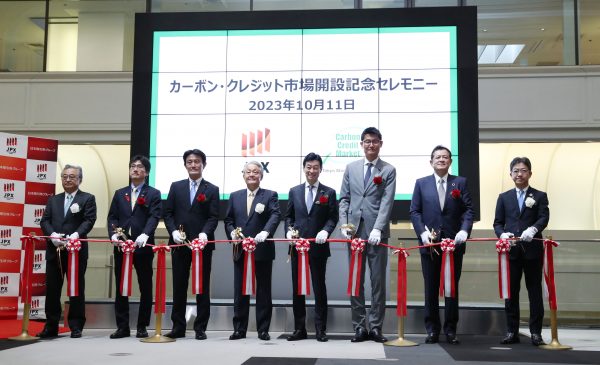In 2020, the Japanese government announced its commitment to achieving net zero greenhouse gas emissions by 2050. But Japan has significantly lagged behind other major economies, such as the European Union, United Kingdom and New Zealand, in implementing carbon pricing. Japan is now seeking to align itself with the strategies embraced by these countries.
In April 2023, the Japanese government initiated a carbon pricing initiative with the aim of incentivising businesses to substantially reduce their carbon emissions. While Japan’s carbon credit system is evolving, it faces emerging challenges. Incremental improvements in technology and market efficiency that the Japanese government has pursued are insufficient to achieve the ambitious net zero emissions target.
Initiated in 2008, J-Credit provides a framework for government-certified exchanges of credits related to reductions and absorption of greenhouse gas emissions. On 11 October 2023, the Tokyo Stock Exchange inaugurated the carbon credit market, which facilitates the trading of CO2 emissions and drives decarbonisation progress. In this market, CO2 emission reduction amounts are bought and sold in the form of tradable certificates issued by the J-Credit system.
Take, for example, the case of a factory replacing an inefficient boiler with a more energy-efficient industrial furnace. The difference in expected emissions between the original boiler and the new furnace is transformed into a credit. In addition to emission reduction projects, absorption projects such as forest management and afforestation can generate credits.
Currently, the industrial and financial sectors in Japan do not have a legal obligation to reduce greenhouse gas emissions. They strongly oppose mandatory ‘carbon pricing’ due to the economic burden it imposes.
The government-led carbon credit market is categorised as a ‘compliance market’, where the supply of allowances is regulated by government policies, though it does incorporate elements of voluntary trading. While compliance carbon markets dominate globally, ‘voluntary carbon markets’, driven by non-state actors, are gaining momentum. Notably, voluntary systems like the Verified Carbon Standard, boasting the world’s highest trading volume, and the Gold Standard, renowned for certifying project quality, exemplify the private sector’s increasing role in carbon credit initiatives.
In Japan, key government agencies such as the Ministry of Economy, Trade and Industry, the Ministry of the Environment and the Ministry of Agriculture, Forestry and Fisheries have mentioned the possibility of increased government involvement. This could align with compliance trading, linked to real carbon neutrality in Japan.
As of October 2023, 188 registered organisations, including power companies, trading firms and financial institutions, are eligible to participate in trading J-Credits on the Tokyo Stock Exchange. It is important to note that J-Credit transactions have limited circulation compared to voluntary credits and are confined to domestic trading.
The creators of these credits can profit from them, providing motivation for emission reduction efforts. But there are concerns regarding the market-driven system. As more companies participate, debates about its effectiveness intensifies. A common criticism is that the carbon credit market has become an easy escape route for companies, hindering fundamental changes in business practices and genuine decarbonisation efforts.
Increasing the number of tradable credits is essential for the growth of the carbon credit market. At the same time, the market’s expansion needs to maintain the quality of credits to achieve genuine emission reductions. Striking this delicate balance is paramount, drawing insights from experiences in various countries and recommendations from diverse initiatives. Failing to do so may introduce risks such as ‘greenwashing’, involving misleading practices associated with claims of carbon neutrality, potentially compromising the market’s integrity.
In addition to the government-led carbon credit market, the GX (Green Transformation) League serves as a collaborative platform, with 679 companies participating as of January 2023, accounting for 40 per cent of Japan’s emissions. The GX league works in conjunction with government agencies and academic institutions. The full-scale operation of Japan’s national voluntary emission trading system, known as the GX-ETS, is not expected to begin until around 2026. Under this program, excess emission reductions from companies in the GX League will become tradeable assets.
Concerns have been raised regarding the voluntary nature of GX League participation, as companies set their own reduction targets and there is no mandatory requirement to fulfill them. Consequently, anticipating significant emission reductions may be challenging.
To attain net zero GHG emissions by 2050, the Japanese government must take more action while promoting technological and market innovations to improve the efficiency of production and address the sluggish pace of progress. Achieving long-term sustainability will require embedding government policy within a broader framework that considers social norms, cultural values and institutional structures. A holistic approach is essential to disentangling environmental degradation from economic growth.
Yasuo Takao is Adjunct Senior Research Fellow at the School of Media, Creative Arts and Social Inquiry at Curtin University.

